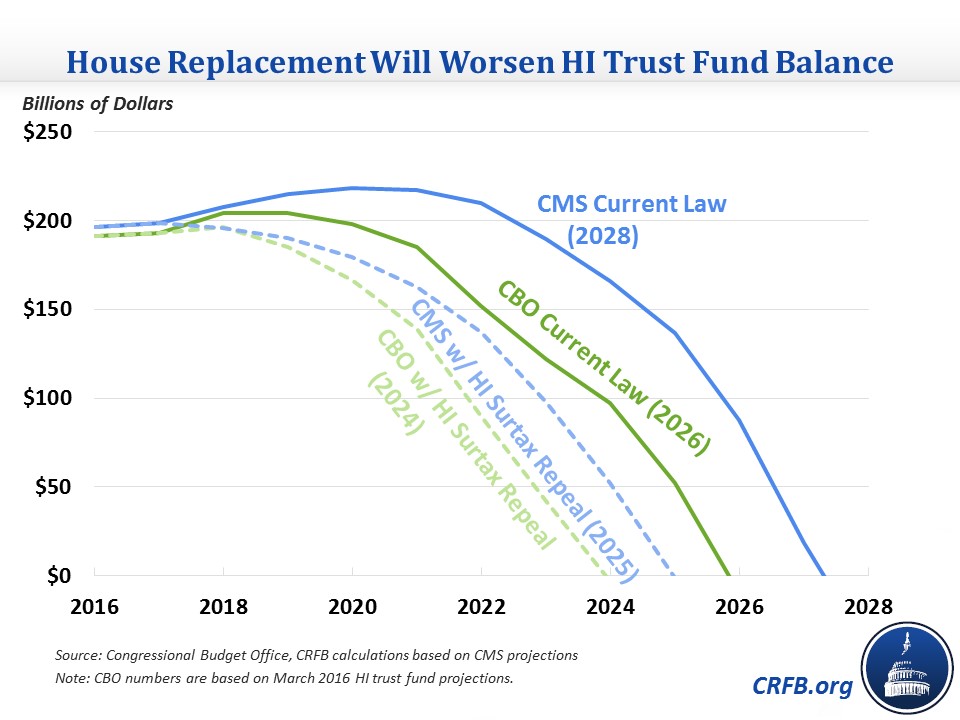House ACA Replacement Would Accelerate Medicare Insolvency
Update (3/21/2017): These numbers are relevant for the original version of the American Health Care Act. An amended version was released on March 20.
Earlier this year, we released three principles for responsible "Obamacare" Repeal and Replace. It appears the current version of the House Republican replacement would fall short of at least one of these principles -- to maintain or improve Medicare solvency -- based on a letter to Senate Finance Committee ranking member Ron Wyden (D-OR) from the Centers for Medicare and Medicaid Services released today.
Per the letter, repealing the 0.9 percent Medicare Hospital Insurance (HI) surtax on high earners from the ACA ("Obamacare") -- which is part of the current House replace bill -- would worsen Medicare HI trust fund's shortfall significantly. Over 75 years, CMS estimates the HI shortfall would increase from 0.73 percent to 1.12 percent of taxable payroll, and the date of insolvency would advance from 2028 to 2025.
This finding is similar to our estimate, based on Congressional Budget Office (CBO) data and projections, that repeal of the surtax would accelerate HI insolvency from 2026 to 2024 and increase the program's ten-year deficits from $350 billion to about $500 billion. Regardless of the estimate used, repealing the HI surtax without making other changes to Medicare will worsen the HI trust fund's finances and ultimately move forward the time at which lawmakers will have to deal with it.

An ACA replacement that repeals the HI surtax does not need to worsen HI's finances, though. There are many options available to produce savings in Medicare, whether from broadening the Medicare tax base, enacting cost-sharing reforms, or changing the way Medicare pays providers. Members of Congress can improve the proposal and avoid a deterioration in HI's financial condition by including these reforms in the replacement.
Absent these reforms, they are better off retaining the HI surtax to avoid worsening Medicare's already-troubled finances. Repeal and replace should make Medicare stronger, not weaker.

